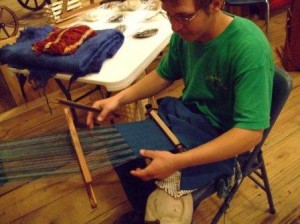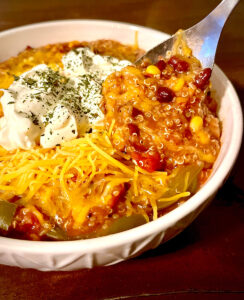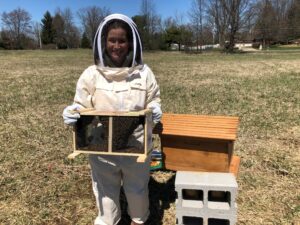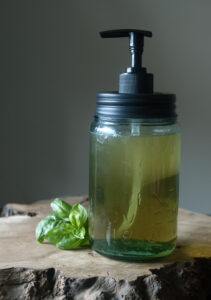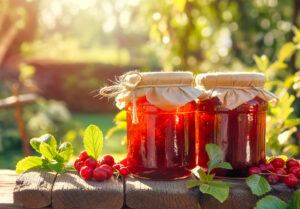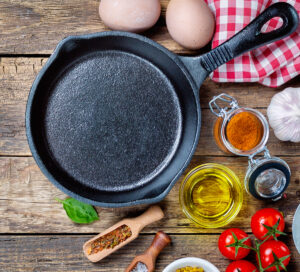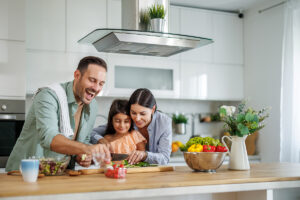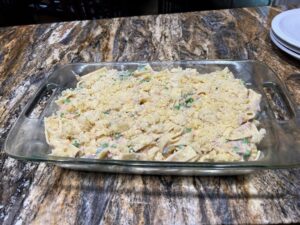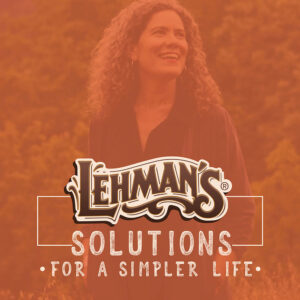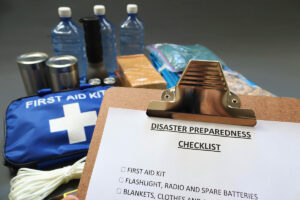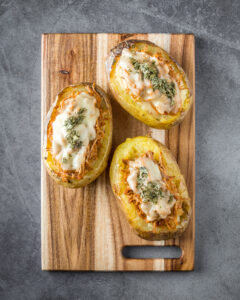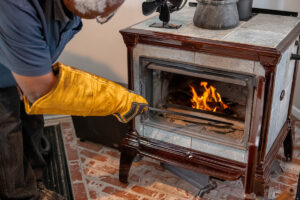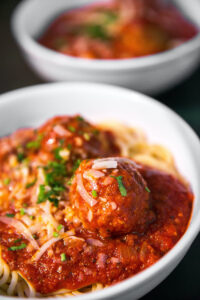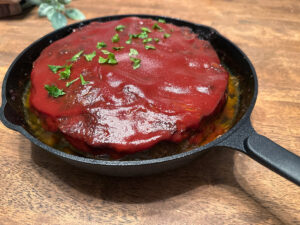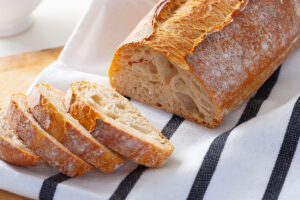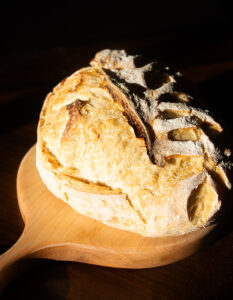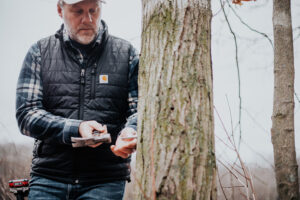Every cook should have a least one cast-iron skillet. I know, a cast-iron skillet may seem like an old-fashioned choice for a modern kitchen, but it is a must. This dependable cookware conducts heat beautifully, goes from stovetop to oven, and lasts for decades (or longer). I love mine. But cast-iron doesn’t stop there; it also has nutritional benefits.
Cast iron is NATURALLY Non-Stick!
Replacing your nonstick pans with cast-iron helps you avoid the harmful chemicals that are found in the coating. Nonstick coating can contain PFCs (perfluorocarbons), a chemical that has been linked to liver damage, cancer, developmental problems, and possibly, early menopause. These chemicals get released — and inhaled — when the pans are used on high heat. We can also ingest these chemicals when the surface of the pan gets scratched. However, a well-seasoned cast iron pan is also virtually non-stick (but without all those chemicals). Seasoning your pan is simple. Here’s how. Plus, that lovely sheen that develops over time allows you to use less oil when you’re frying crispy potatoes or searing chicken. And that’s healthier, too. Care of your cast iron: Never use soap when you clean your cast iron pans. Just simply scrub with a stiff brush and hot water and make sure you dry it completely. (My mom always used to put it in the oven on low heat to dry it.)
Yes, you’re eating IRON (and that’s a good thing).
While cast-iron does not leach harmful chemicals, it can leach healthy iron into your food. Iron deficiency is fairly  common worldwide, especially among women. (Fact: 1 in 10 American women are iron deficient.) Cooking food in a cast iron pan, especially something acidic like your favorite spaghetti sauce, can increase the iron content by as much as 20 times.
common worldwide, especially among women. (Fact: 1 in 10 American women are iron deficient.) Cooking food in a cast iron pan, especially something acidic like your favorite spaghetti sauce, can increase the iron content by as much as 20 times.
From the battlefields to the prairie and, now, to our modern kitchens, the cast iron pan forever forges a place in our lives. So break out your grandma’s old pan, or the one you just got as a gift and don’t know what to do with, and have some good healthy fun.
Apple, Sauerkraut & Cheddar Quesadillas
Servings: 2 main-dish or 4 appetizer servings
Ingredients
1 cup sauerkraut, rinsed
1/2 cup water
2 9-to-10-inch (burrito-size) flour tortillas
1 1/3 cups grated reduced-fat Cheddar cheese
1 small Granny Smith or other tart, juicy apple, peeled and very thinly sliced, peeled and very thinly sliced
Put sauerkraut and water in a medium cast iron skillet. Gently heat just until the liquid has evaporated but not so much that the sauerkraut begins to stick to the pan. Remove from heat. Gradually heat a large cast iron skillet over medium heat. Put one tortilla in the pan and immediately sprinkle 1/3 cup cheese over half of it. Quickly arrange about half the apple slices over the cheese, then top with half the sauerkraut, spreading it evenly. Sprinkle with another 1/3 cup cheese.
Fold the tortilla over the filled half and press gently on it with a spatula to seal. Heat the quesadilla until the bottom is golden, about 2 minutes, then carefully flip and lightly brown the other side. Slide the quesadilla onto a cutting board and cut it into halves or quarters. Prepare the second one in the same fashion. Variation: A little chopped ham tastes wonderful layered in with the other ingredients.
Cranberry Upside-Down Cake
Servings: 10
Ingredients
3/4 cup packed light brown sugar
4 tablespoons unsalted butter, softened, divided
2 tablespoons plus 1/4 cup fresh orange juice, divided
1 12-ounce bag fresh or frozen (thawed) cranberries (about 3 cups)
3/4 cup whole-wheat pastry flour
3/4 cup all-purpose flour
2 teaspoons baking powder
1/4 teaspoon salt
2 large eggs, at room temperature
1/3 cup canola oil
1 cup granulated sugar
1 teaspoon vanilla
1/2 cup low-fat milk, at room temperature
Whipped cream for garnish
Preheat oven to 350°F. Heat brown sugar, 2 tablespoons butter and 2 tablespoons orange juice in a large (12-inch) cast iron skillet over medium heat, stirring constantly, until the butter melts and the mixture starts to bubble. Let cool. Coat the sides of the skillet with cooking spray. Bring the remaining 1/4 cup orange juice and cranberries to a simmer in a medium saucepan, stirring often, until about half the cranberries have popped. Pour evenly over the cooled brown sugar mixture in the skillet. Whisk whole-wheat flour, all-purpose flour, baking powder and salt in a medium bowl. Separate egg whites and yolks. Place the yolks in a large bowl and add the remaining 2 tablespoons butter, oil, granulated sugar and vanilla. Beat with an electric mixer or stand mixer on medium-high speed until light and fluffy. Stir in the flour mixture alternately with milk, using a rubber spatula, starting and ending with the flour. Stir just until the flour is incorporated. Beat the egg whites in a clean dry mixing bowl with clean dry beaters on medium-high speed until they hold soft peaks. Fold one-third of the egg whites into the batter, then gently fold in the rest until almost no white streaks remain. Spread the batter over the cranberries. Bake until the top is golden brown and the cake pulls away from the sides of the skillet, about 30 to 40 minutes. Let cool in the skillet on a wire rack for 15 minutes. Run a knife around the edge of the pan and carefully invert the cake onto a serving plate. Let cool for at least 30 minutes more before serving. Serve warm or room temperature. Garnish with whipped cream, if desired.

